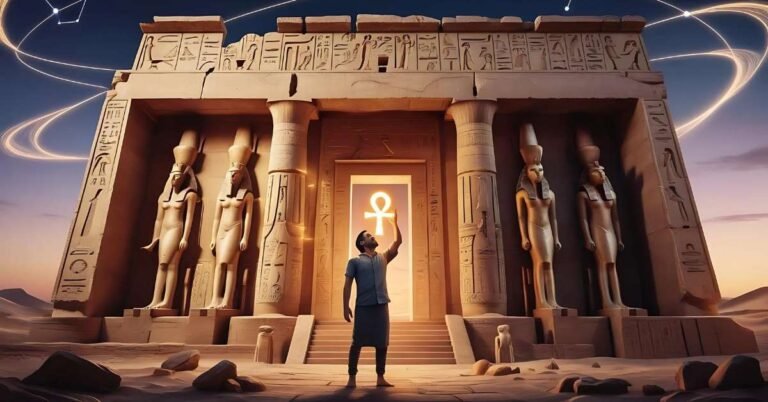History echoes with the stories of great civilizations—powerful empires that reached extraordinary heights only to crumble into obscurity. From the cultural and scientific marvels of ancient Egypt to the strategic prowess of the Roman Empire, each civilization left behind a legacy etched in ruins, artifacts, and enduring ideas.
What can these ancient empires teach us about resilience, leadership, innovation, and the pitfalls that lead to decline? In this blog, we’ll explore the rise and fall of these civilizations and examine their relevance in today’s world.
Table Of Contents
- The Foundations of Civilization: What Makes an Empire Rise?
- Why Do Empires Decline? Key Lessons from the Past
- Atlantis: A Cautionary Tale of Hubris and Collapse?
- The Enduring Legacy of Ancient Civilizations
- Modern Lessons: Avoiding the Pitfalls of the Past
- Connecting Ancient Wisdom to Today’s World
- What If Ancient Wisdom Had Survived Intact?
- Conclusion: Building Resilient Societies
The Foundations of Civilization: What Makes an Empire Rise?
Ancient civilizations didn’t just appear overnight. Their success was built upon core pillars: geographic advantage, social structure, innovation, and cultural unity.
Geographic Advantage
The fertile lands of the Nile in Egypt and the Tigris-Euphrates in Mesopotamia enabled abundant agriculture, allowing populations to grow and cities to flourish. Proximity to trade routes brought resources and ideas, spurring economic and cultural development.
Social Organization and Leadership
Strong leadership was a hallmark of rising civilizations. Leaders like Pharaoh Ramses II of Egypt and Julius Caesar of Rome unified vast territories, fostering innovation while maintaining order. These leaders established centralized governance systems that could manage resources, armies, and infrastructure.
Innovation and Adaptability
Technological and cultural advancements fueled the success of empires. The Babylonians’ Code of Hammurabi, one of the earliest sets of written laws, demonstrated the importance of structured governance. Its principles still echo in modern legal systems, underscoring the lasting impact of ancient wisdom.
Why Do Empires Decline? Key Lessons from the Past
While these civilizations achieved remarkable feats, their declines were often triggered by a combination of internal weaknesses and external pressures.
1. Environmental Degradation
Overexploitation of natural resources, such as deforestation in Mesopotamia and soil erosion in ancient Greece, contributed to food shortages and societal collapse. Modern parallels can be drawn to today’s climate crisis and the importance of sustainable resource management.
2. Economic Inequality
In many cases, growing wealth disparities led to social unrest. For instance, the widening gap between the Roman elite and the common people contributed to the empire’s eventual fall.
3. Political Corruption and Inefficiency
Weak leadership and corruption often exacerbated existing challenges. The decline of the Maya civilization is partly attributed to political fragmentation and ineffective governance.
4. External Invasions and Conflicts
Empires like Rome and the Indus Valley Civilization faced invasions that overwhelmed their defenses. These conflicts revealed the importance of strong alliances and adaptable military strategies.
5. Loss of Knowledge and Innovation
When civilizations fell, their accumulated knowledge was often lost. A prime example is the Great Library of Alexandria, a treasure trove of ancient wisdom destroyed during the Roman conquest. What if that knowledge had survived?
Atlantis: A Cautionary Tale of Hubris and Collapse?
The mythical city of Atlantis, described by Plato, serves as a symbol of advanced civilization brought down by its own hubris. Whether or not Atlantis existed, its story offers valuable lessons about the dangers of overreaching ambition, environmental neglect, and moral decay.
Modern societies face similar challenges, from unsustainable urban development to unchecked technological advancements. Could Atlantis hold the secrets to navigating these risks?
Explore the mysteries of Atlantis in Atlantis Uncovered: Could the Lost City Hold the Secrets to Modern Civilization?.
The Enduring Legacy of Ancient Civilizations
Though these empires fell, their influence persists in countless ways.
1. Architecture and Urban Planning
From the pyramids of Egypt to Roman aqueducts, ancient architectural feats continue to inspire modern engineering and urban planning. Today, sustainable design often incorporates lessons from these enduring structures.
2. Language and Literature
Languages like Latin and Sanskrit, though ancient, form the roots of many modern languages. Similarly, epic works like Homer’s Iliad and The Mahabharata provide timeless insights into human nature and morality.
3. Legal and Political Systems
The governance structures of ancient civilizations, such as the Athenian democracy, have profoundly shaped contemporary political systems. The concept of rule of law, as codified in the Code of Hammurabi, remains a cornerstone of justice.
Modern Lessons: Avoiding the Pitfalls of the Past
Understanding the rise and fall of ancient civilizations offers valuable insights into building resilient societies today.
1. Prioritize Sustainability
The environmental lessons of the past remind us that sustainability must be at the heart of modern development. Failing to address issues like climate change could lead to a global collapse akin to those of ancient empires.
2. Invest in Education and Knowledge Preservation
The loss of knowledge, such as that housed in the Great Library of Alexandria, highlights the importance of preserving and sharing information. Digital archives and global cooperation are modern solutions to this ancient problem.
3. Foster Social Equity
Economic disparities were a key factor in the decline of many empires. Addressing inequality through policies that promote fairness and opportunity can help stabilize societies.
4. Embrace Innovation with Caution
While technological and cultural advancements drove the success of ancient civilizations, unchecked ambition often led to their downfall. Balancing progress with ethical considerations is essential in avoiding similar mistakes.
Connecting Ancient Wisdom to Today’s World
While the challenges faced by ancient civilizations may seem distant, they mirror many of the issues we grapple with today. From climate change to political instability, the stories of these empires remind us of the importance of adaptability, unity, and forward-thinking leadership.
Modern societies can also draw inspiration from the enduring achievements of these civilizations. The strategic ingenuity of the Romans, the philosophical insights of the Greeks, and the scientific advancements of the Islamic Golden Age are all testaments to human potential.
What If Ancient Wisdom Had Survived Intact?
Consider a world where the Great Library of Alexandria had not been destroyed, or Atlantis (if real) had shared its supposed advanced technologies. Would humanity have achieved modern advancements earlier?
While such speculation captivates the imagination, it also underscores the importance of preserving knowledge today. The internet and global cooperation represent modern “libraries” that could prevent future losses.
Conclusion: Building Resilient Societies
The rise and fall of ancient civilizations offer a wealth of lessons for modern societies. By studying their successes and failures, we can learn to navigate our challenges more effectively.
In an era of rapid technological and cultural change, remembering the enduring legacies of the past can provide valuable perspective. Ancient civilizations remind us of the power of innovation, the importance of unity, and the perils of neglecting the fundamentals of sustainability and social equity.
As we face the complexities of the 21st century, let the echoes of history guide us in building a future that honors the wisdom of the past while embracing the possibilities of the present.









1 thought on “The Rise and Fall of Ancient Civilizations: What Lessons Do Ancient Empires Teach Us Today?”